Between an over-hyped political outreach and a curtain raiser for investment in Jammu and Kashmir, there was a ‘dirty picture’ and a radical revelation in between, reports Masood Hussain
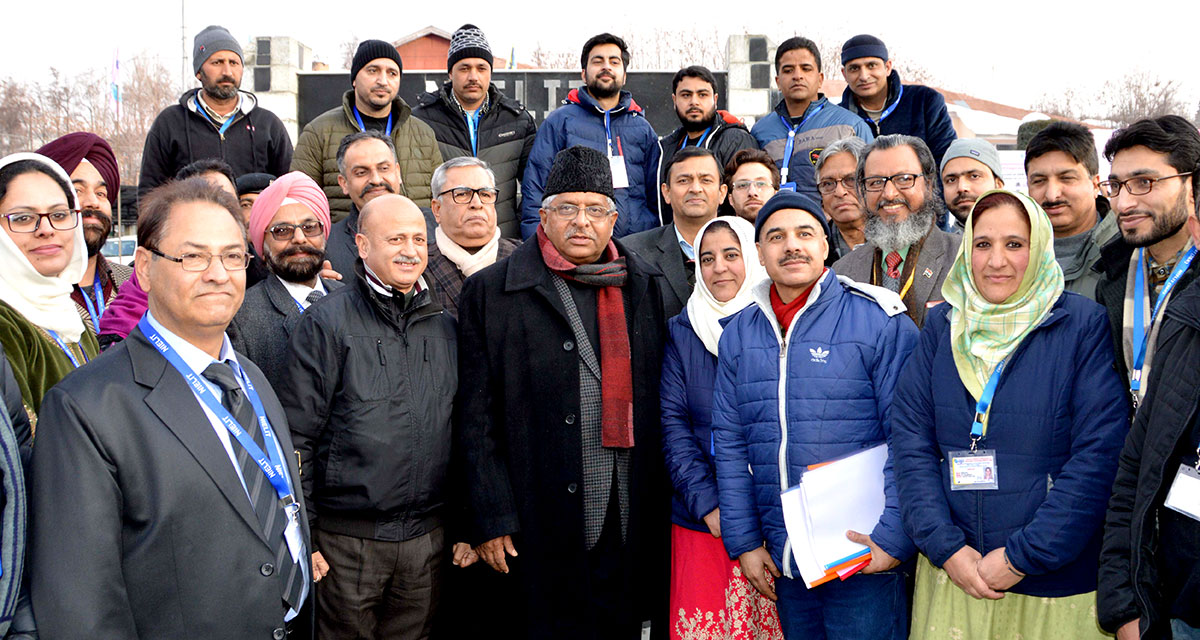
Dressed in woollens and wearing a Karakul cap, Mukhtar Abas Naqvi made a fiery speech to an estimated 350 audience comprising some civilians, Sarpanchs, and daily-wagers in the Block Development Office, adjacent to the Harwan police station. He virtually laid the foundation stone for a school for Dara, one of the improvised localities of Gujjars, overlooking the Srinagar city, even though it is located barely 6 kms from the venue.
Naqvi talked about employment, education and empowerment but skipped explaining either of the three. He said Kashmir will become part of India’s development story, an initiative Kashmir missed because of corrupt politicians and Article 370.Apart from virtual inauguration of various other projects, the minister talked about Haj pilgrimage and accountability. Later, he got on a boat and sailed in the Dal Lake where, an official spokesman said he talked to boatmen community.
Next morning, he drove to Makka Market, a small flea market in Lal Chowk, where he met a few traders, some were angry and some talked in Roti, Kapda, Makan parlance. Suggesting traders to get their wards fill the mandatory forms, Naqvi said Modi government is giving one million scholarships to the Jammu and Kashmir students in next five years. The five-minute visit witnessed news cameramen outnumbering all others forcing the police escort to cut the visit short. In Jammu he said he saw positivity around in Kashmir.
Project Outreach
Naqvi was the first senior BJP minister who piloted the Modi government’s grand outreach plan for Kashmir. Seven other ministers followed him. They all had small good gatherings comprising semi-permanent and auxiliary employees, party activists and some of the beneficiaries of particular schemes.
In Baramulla, Communication Minister, Ravi Shankar Prasad inaugurated a Sports Stadium, met various delegations and had tea on a roadside stall. Earlier in Srinagar, he inaugurated an All Women Post office. A day later, he was in Sopore, the erstwhile capital of militancy where he had a receptive audience.
In Ganderbal, junior Home Minister G Kishan Reddy tried to address the fears of the people. “People need not to worry as only the government land will be allotted to the investors for setting up their (industrial) units,” Reddy said.“No private land shall be acquired for setting up industry by any outside investor.”
In Srinagar, Minister of State for Defence Shripad Nayak said all districts would get 50-bedded AYUSH hospitals worth Rs 12 crore each. It was a hall full of audience from diverse fields at the SKICC. Almost everywhere the visiting ministers said that binning of Article 370 will make a big difference to Kashmir.
Modi government’s outreach plans, however, triggered serious criticism from Congress. The grand old party was angry over why most of the ministers preferred Jammu over Kashmir. Of 36 ministers flying to attend 59 official functions across the UT of Jammu and Kashmir, only eight will visit Kashmir. No minister will visit Kashmir’s seven of the 10 districts.
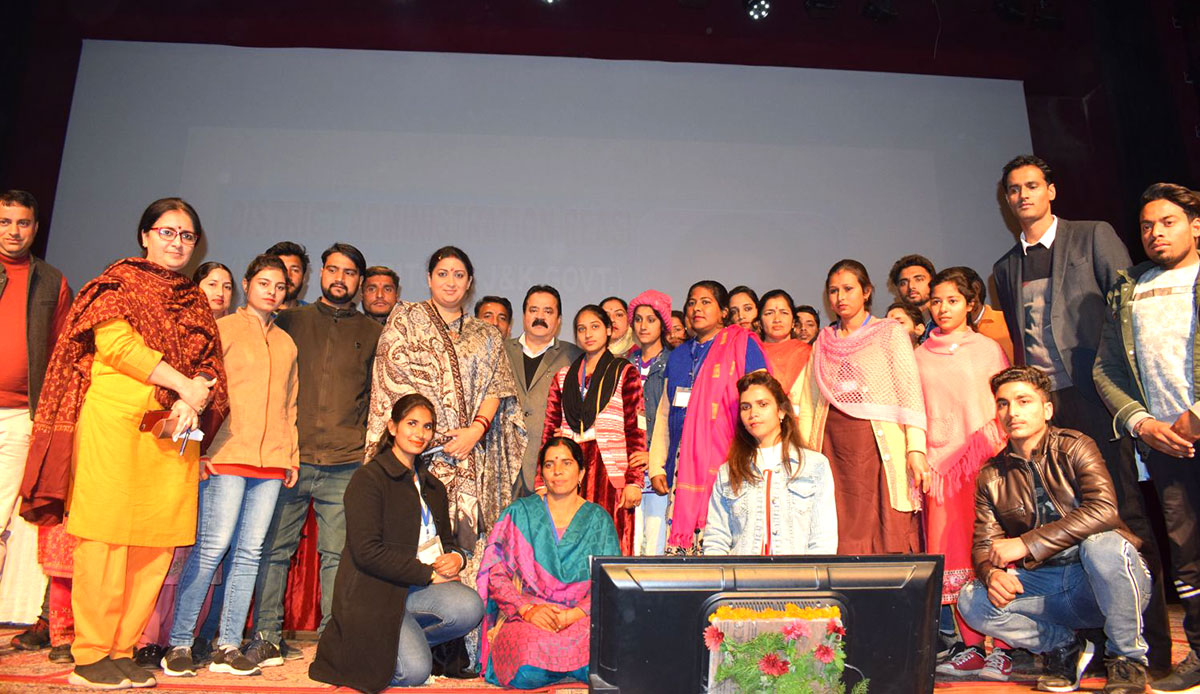
“Since one of the listed agenda of the purpose of the visit of the brigade of visiting ministers, on the eve of Delhi and West Bengal elections, is to apprise and educate the people about removal of special status for the erstwhile State, they should have organized more such programmes in Kashmir region to aware the people of the benefits of the abrogation of Article 370,” Congress spokesman Ravinder Sharma said in Jammu. “They should also explain the benefits of the disbanding and downgrading of the erstwhile State with a unique history and culture into UTs.”
Some of Sharma’s leaders in Delhi dubbed the visiting ministers as “propagandists” and even “cowards”.
Crowded Jammu
Jammu witnessed literally a crowd of ministers. On one day, there were nine central ministers – Piyush Goyal, Smriti Irani, Dr Jitendra Singh, RK Singh, Anurag Thakur, Arjun Ram Meghwal, Ashwani Choubey, V Muraleedharan and Mahendra Nath Pandey – in the region, visiting distant locations closer to the LoC and the plains. On January 23, there were 10 ministers roaming around in the Jammu region. The programme, insiders said, is political in nature and is aimed at arresting the anti-BJP trend in Jammu, party’s main support base. In Sangh history, Jammu has remained a predecessor to Nagpur.
Post August 5, when the special status was binned and the state was converted into two UTs, Jammu started feeling the heat. For most of the history, Jammu was used as a counter-narrative to Kashmir by accusing the valley of usurping power, discriminating against Jammu and disempowering the Dogras.
Now when special status, already hollowed since 1953, was binned, it is Jammu facing the heat. The issue of jobs, the demographic composition, and the most crucial land ownership are some of the key factors that have sent Jammu in sort of a shock. An alarming feedback from Jammu led to the devising of outreach plans and it was quickly acted upon. The ministers are explaining the benefits to the people in Jammu about how the Article 370 was an obstacle in developmental activities, accountability and anti-corruption.
Hardeep Singh Puri, the Civil Aviation Minister announced eight additional airports including four at Akhnoor, Chhamb, Udhampur and Rajouri to improve connectivity. Some ministers inaugurated some small projects that had already been completed.
Domicile Law
The government, however, is aware that the outreach is unlikely to help unless the core concerns are addressed. The central government has already drafted a draft domicile bill for Jammu and Kashmir. This is expected to protect the jobs and the demographic composition with a rider that anybody who lives in the state for 15 years can have the same right. The bill, according to well placed sources, will be introduced in the parliament at the earliest.
Lt Gov GC Murmu who accompanied some of the ministers told people in Jammu that keeping in view the interests of the Union Territory, the Government will ensure protection of land and jobs for the locals of Jammu and Kashmir subject to certain exceptions.
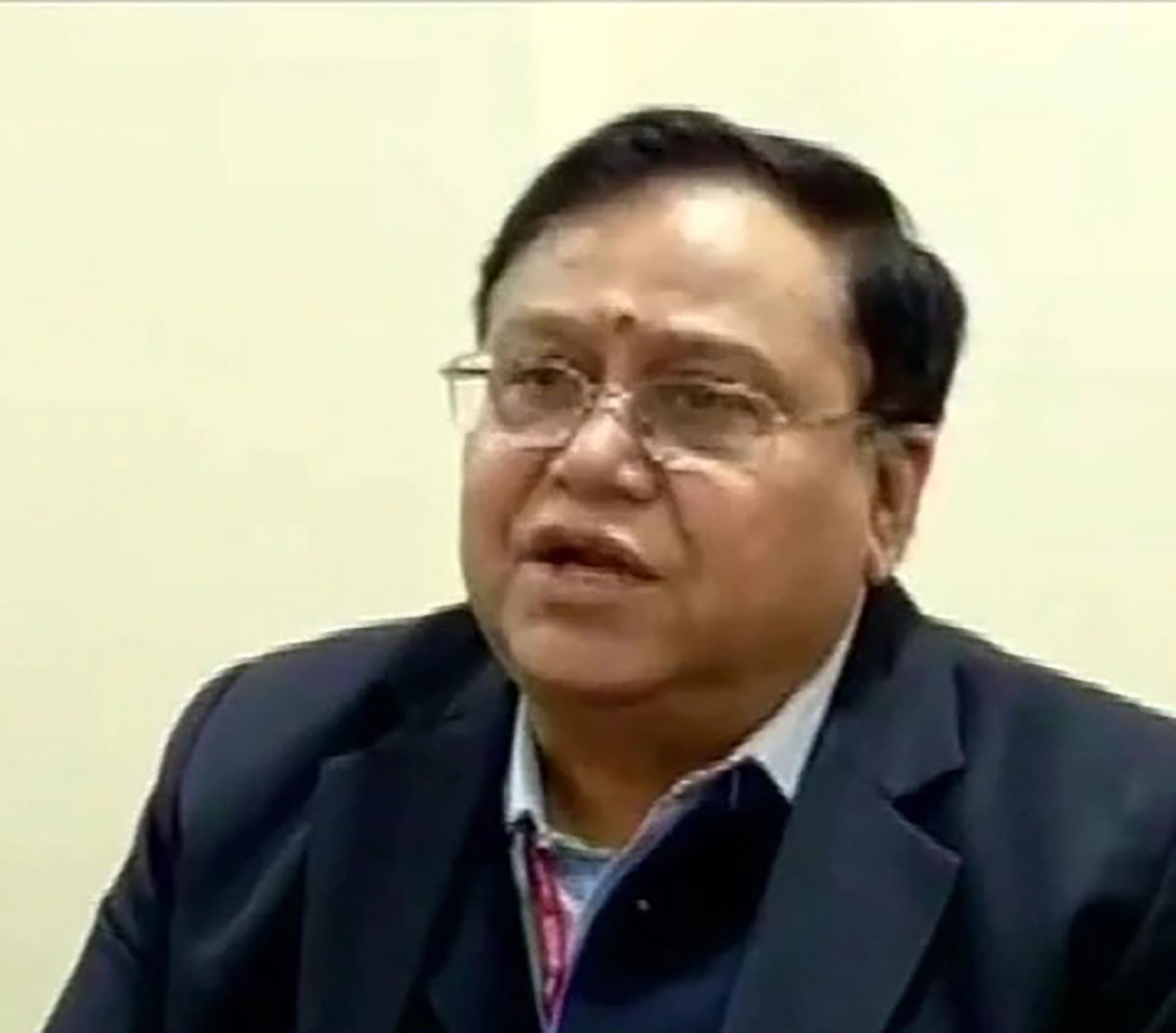
NC leader and former minister, Ajay Kumar Sadhotra, however, said the visit was hyped to raise the expectations. “It is not a small thing that 36 cabinet ministers are visiting Jammu and Kashmir but the people want to see the outcome,” Sadhotra said. He believes the programme was sort of a political initiative on the pattern of Back to Village (B2V) that already witnessed two editions. “It was B2V-3 and it witnessed the same fate as B2v-2.” The ambitious B2V involved the thousands of officers going into the village and listing the priorities and the deficits at ground zero. “These ministers came to cut the ribbons of the projects we had completed earlier. There was nothing much beyond photo-ops.”
Mehbooba Mufti’s daughter, Iltija Mufti, termed the week-long visit as “normalcy acrobatics”, asserting the “outreach” was BJP’s “concern for vote bank politics”.
Attracting Investment
At the same time, however, the central government is pushing for an investment summit for early April. Last week witnessed the curtain raiser event in Delhi, where the Lt Gov, GC Murmu said his administration is working on an Industrial Promotion Policy 2020. The new policy will envisage UTGST reimbursement in full, an attractive land policy, exemption from stamp duty, a capital investment subsidy and other benefits. These benefits will be in addition to the incentives being extended under the central policy in vogue.Murmu told the audience that the abrogation of special status has removed all “artificial barriers” and will make Jammu and Kashmir an “economic paradise” for investors. Inviting investors to see for themselves, Murmu said the Kashmir is abnormal for militants only.
The event showcased policy and regulatory environment, investment opportunities in 14 focus sectors to boost manufacturing and employment generation in the region, according to an official spokesman. It said more than 350 delegates from various sectors and leading organisations participated in the event which held over 45 B2G meetings.
“The good thing was that the UT had identified sectors for investment, for which they must work on separate policy frameworks” one senior entrepreneur, who was invited to the event, said. “All secretaries were there so were various cabinet ministers. But I did not see any major investor or maybe I could not recognise.”
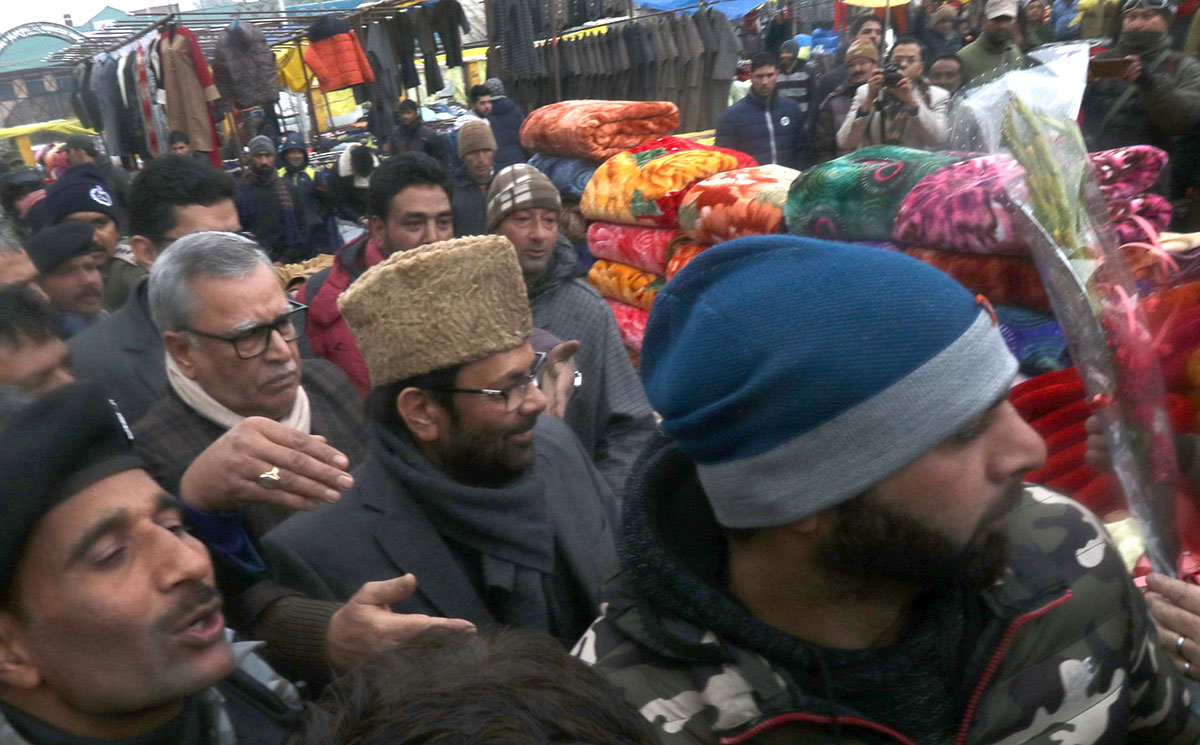
Piyush Goyal, the industries minister told in Jammu that by March 2021, Jammu and Kashmir will have 25 projects worth Rs 25000 crores. Earlier media from Delhi reported the government was working to have an investment of at least one lakh crore rupees.
A Kashmiri participant said the government, especially the Chief Secretary, BVR Subramaniam forcefully put across its point using the emotion and politics. He refused that Jammu and Kashmir was backward and asserted people in the UT die of old age rather than any disease. “Let us see how it pans out,” he said. “I could feel that around six to seven major companies had sent their representatives.”
Interestingly, on the sidelines, off the cameras a top officer met a Kashmir trade leader for a follow up to the promise that two trade leaders – Syed Shakeel Qalander and Mohammad Yasin Khan, still in jail will be freed.
A Dirty Picture
Interestingly, during the interactive session one non local participant asked the UT officers about how they will transact business at a place that lacks internet. A senior officer admitted the fact justifying that it was aimed at countering “disruptive activities”. He assured him that in future such blockades may not happen even though the business is using the internet.
The internet blockade in Kashmir, now in the sixth month, however, created a major news when Niti Aayog(the erstwhile Planning Commission) member VK Saraswat, who is also the Chancellor of Jawaharlal Nehru University (JNU), said Kashmiri people only watch dirty films on the internet.
“What difference does it make if there’s no internet in Kashmir?” Saraswat was quoted saying.“What do you watch on the Internet there? What e-tailing is happening there? Besides watching dirty films, you do nothing there.”
Speaking on the sidelines of the annual convocation at Dhirubhai Ambani Institute of Information and Communication Technology (DA-IICT) in Gandhinagar (Gujarat), he added a few words of wisdom: “Why do politicians want to go to Kashmir? They want to recreate the protests happening on the roads of Delhi in Kashmir. They use social media to fuel protests.”
The statement made Sarswat a butt of jokes in the virtual comedy circus and in the din the condemnations to his utterances were lost. Kashmir Chamber termed Sarswat a “filthy mind”. A day later, Sarswat took the “out of context” route to withdraw his utterances and extended his apologies to Kashmir!
Deradicalisation Camps
Internet blockade that has created a record of sorts is a global reference now. In between the outreach and the investment curtain raiser, however, there was another major development – the creation of de-radicalisation camps in Kashmir. The idea came from General Bipin Rawat, India’s first 4-star General, now the first Chief of Defence Staff (CDS).
“Girls and boys as young as 10 and 12 are now being radicalized. These people can still be isolated from radicalization in a gradual way, but there are people who have completely been radicalized,” General Rawat told the Raisina Dialogue 2020on January 16, while talking about the terrorism and Kashmir. The conference had foreign diplomats and government officials in audience. “These people need to be taken out separately, possibly taken into some deradicalization camps. We’ve got deradicalization camps going on in our country.”
Rawat said containing radicalisation is key to effectively combat terrorism. “You got to start looking at where the radicalisation is taking place,” he suggested. “Who are the people involved in radicalising the people. It is happening in schools, universities, from religious places and sites, and then there are group of people who are spreading this.”
A few days later, his idea found an echo in Srinagar.“If any such facility comes up in Kashmir that will be a good sign, it should happen. It’ll definitely help people, especially those who have gone astray,” Jammu and Kashmir police chief Dilbagh Singh told a crowded news conference. “If some sensible kind of arrangement is made where good people from the civil society and experts who deal with the subject and relevant aspects of religion and other things… I think that will be a good development. That kind of things should be welcomed.”
This has already triggered a debate. Condemnations apart, it has shocked experts over the presence of such camps. The Telegraph commented: “This is a frightening revelation, if true.”
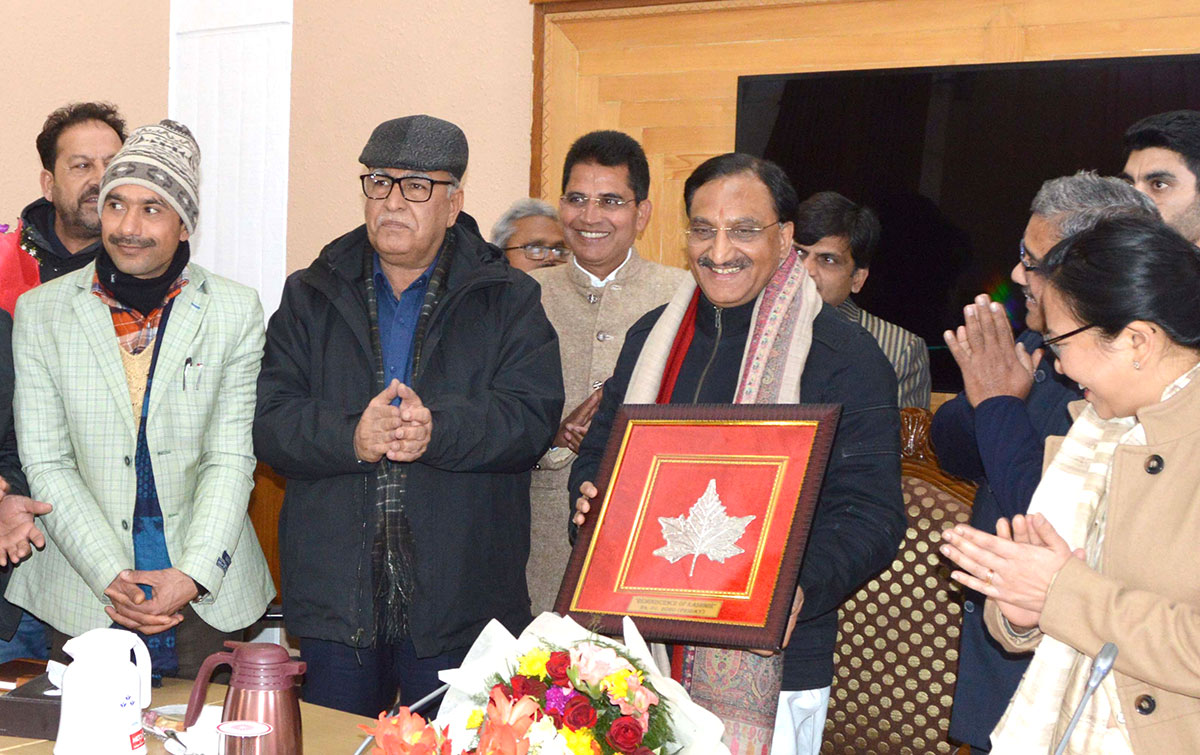
“I could affirm with my experience of studying, writing and lecturing on the ‘counter-narratives’ programme for over 15 years, especially to the Maharashtra police and Karnataka government, that no such ‘camps’ exist for the police-operated counselling efforts,” Vappala Balachandran, former Special Secretary in the Cabinet Secretariat, wrote in The Tribune. “I do not know how the CDS could talk about such ‘camps’ existing in India unless they are secret. If secret, it is alarming.”
A Kashmiri participant to the investment summit curtain raiser said there were a few real estate people. “Will they be building these camps,” he asked, almost in bewilderment.

